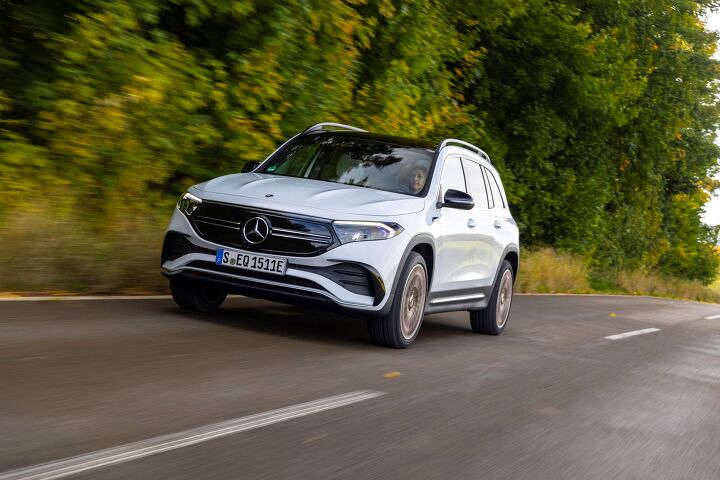
Canadian dealers of Mercedes-Benz vehicles are reporting that the automaker is considering revising its strategy for North America.
The dealers attended a market-wide retailers meeting in Vancouver held in May and noted that the automaker was fretting about consumer hesitancy over expensive electric vehicles. Concerns centered around the ailing economy, which has been undermined by higher interest rates and ongoing inflation.
“Electrification, we’re all eager for it,” Perry Itzcovitch, dealer principal of Mercedes-Benz Downtown in Calgary, told Automotive News Canada. “But people are value-conscious. Interest rates have gone up, and people are a little tighter [with their money].”
From Automotive News:
Jim McManes, dealer principal of Mercedes-Benz Country Hills in Calgary, said he heard from company representatives that the automaker is not making the transition to EVs as quickly as it had initially planned.
“They have come to the realization that consumers have a role to play in this decision,” McManes said. “They have to listen to what consumers want. Many just can’t afford electric vehicles.”
Zak Paget, a spokesman for Mercedes-Benz Canada, would not confirm a less aggressive strategy and said the company does not comment on private meetings with dealers. He did say that statistics suggest the momentum for its battery-electric EQ vehicles is building.
“In Q1 2023, Mercedes-Benz Canada set a new quarterly sales record for Mercedes-EQ vehicles,” Paget wrote in an email to Automotive News Canada, adding that the target dates for electrification are unchanged. “Led by the EQB SUV [136 units retailed], the company retailed a total of 332 Mercedes-EQ units.”
But Canadian EV sales are heavily contingent upon location. While sales have been good in metropolitan hubs, dealers said Calgary (which boasts longer driving distances and some of the nation’s coldest winters) wasn’t nearly as keen on electric vehicles.
A similar phenomenon exists within the United States. Regions boasting extreme climates and prolonged daily commutes have shunned electrification compared to coastal zones boasting higher incomes and denser populations. While improving the rural charging infrastructure would undoubtedly help narrow the gap, modern EVs would also need to lower charging times and bolster their maximum range for there to be meaningful change. However, none of that addresses the glaring pricing disparity.
A base Mercedes-Benz GLA 250 starts at $37,500 before factoring in taxes and fees. But the all-electric EQB 250 (the brand’s cheapest EV) starts at $52,750 under the same conditions. When pitted against the $39,800 GLB 250, things are even worse for the electrified EQB. While the cars are dimensionally similar, going with the gasoline-powered model yields better range and superior performance in a package consumers are more familiar with.
Mercedes made an announcement a few years ago that every new product released after 2025 would be battery-powered. However, the plan is looking increasingly risky as consumer acceptance lags behind industry estimates and the resulting vehicles aren’t offering a better value for money. Mercedes-Benz may be a luxury brand. But it still exists within the confines of reality and the market doesn’t seem like it can sustain the automotive sector’s desired EV offensive.
The Canadian dealers reported that corporate representatives had suggested Mercedes had been overly aggressive with its all-electric strategy. They said that the brand would place a greater emphasis on hybrid vehicles while supporting its vehicle lineup of internal-combustion engines. An emphasis was also placed on ensuring the automaker could deliver more affordable models.
Dealers also provided a taste of Mercedes' forthcoming lineup. The event showcased eight vehicles, including the redesigned E-Class sedan, AMG SL 43 roadster, and Maybach EQS. The brand likewise introduced the electric CLA sedan and GLC crossover, perhaps indicating that it would be dumping the EQ branding to roll EVs into the core lineup.
The existence of those models certainly proves that Mercedes-Benz won’t be abandoning EVs overnight. But the new models will be chasing improved range, reduced charging times, and other aspects designed to make them more comparable to their combustion counterparts.
[Image: Mercedes-Benz]
Become a TTAC insider. Get the latest news, features, TTAC takes, and everything else that gets to the truth about cars first by subscribing to our newsletter.
via Autobuzz Today
Comments
Post a Comment